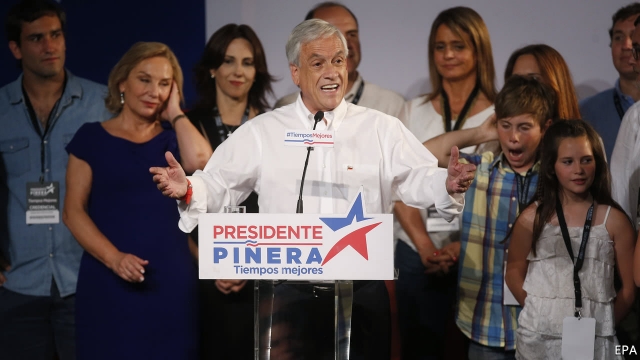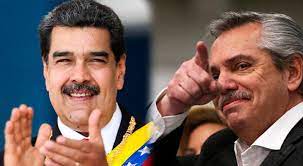
The Economist: An unexpected result moves Chile into uncharted political territory
Sebastián Piñera is no longer the prohibitive favourite
“WE’RE content,” declared Sebastián Piñera, after the results of the first round of Chile’s national elections were reported on November 19th. Few believe him. Mr Piñera, the presidential candidate of the centre-right Chile Vamos (Let’s Go Chile) coalition came in first, but with just 37% of the vote, well under the 44% or so pollsters had predicted. He faces a run-off on December 17th against Alejandro Guillier, a television journalist who represents the centre-left Force of the Majority coalition; he got 23% of the vote in the first round. Mr Piñera, a billionaire businessman who was president from 2010 to 2014, is still the favourite, but not by much.
The surprise successes in the first round come from the fringes of Chilean politics. The biggest question facing the country is to what extent those extremes will influence the next government.
The third-place finisher, with 20% of the vote, was Beatriz Sánchez, a left-wing journalist who has never held elected office. She wants higher taxes on the rich to pay for universal free health care and education, and would replace the current pension system, based on privately managed funds, with one run by the government. Although Ms Sánchez will not be president, her newly formed grouping, Frente Amplio (Broad Front), will be a force. In congressional elections, held on the same day as the presidential vote, the Frente Amplio won 20 seats in the lower house of congress, up from three now, and gained its first seat in the senate. “Chile wants change and this was expressed today with votes,” said Ms Sánchez in an emotional post-election speech.
The elections also boosted the fortunes of José Antonio Kast, a rightist who exceeded expectations by winning 8% of the vote. He proclaims himself a fan of Augusto Pinochet, a brutal dictator of the 1970s and 1980s, promotes gun ownership and is keen to send the army to help the police crack down on violence by indigenous Mapuche extremists in southern Chile. By contrast, Carolina Goic, the candidate of the centrist Christian Democrats, a constituent of the New Majority coalition led by the current president, Michelle Bachelet, fared poorly. She won less than 6% of the vote.
Mr Piñera and Mr Guillier will now have to seek support from the far ends of the political spectrum. That will be harder for Mr Piñera, who has run as a reassuring centrist, promising to boost growth through deregulation and a simpler tax system while investing more in public services, such as education. Mr Guillier may find it easier to win over supporters of the Frente Amplio, although it is not clear that the grassroots movements that make up the coalition will endorse him. They broke away from Ms Bachelet’s New Majority because they thought her reforms of education, tax and pensions too timid. Mr Guillier is not proposing anything much bolder.
Ms Goic’s votes are another prize, which may go mainly to Mr Piñera. Analysts think many of her centrist supporters will be reluctant to support a strengthened left.
The new congress will make the next president’s job harder. The outgoing legislature, elected under a “binomial system” endorsed by Pinochet, was dominated by New Majority and Chile Vamos. The new one is the first to be elected under a system of proportional representation designed to give more seats to smaller parties.
Chile Vamos won the most seats and is just five short of a majority in the lower house. But Mr Piñera would find it harder than would Mr Guillier to strike deals with centre-left and leftist parties like Frente Amplio, which owes its congressional success to the new system. Chile’s unexpected election result means that one of Latin America’s most stable and prosperous countries is entering a period of unaccustomed uncertainty.

